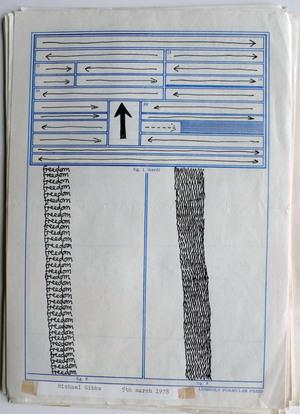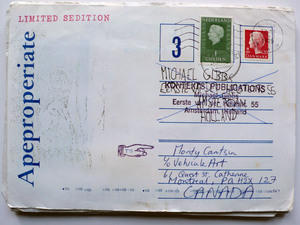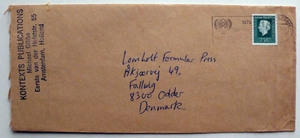Index: Michael Gibbs
Biography
Michael Gibbs (1949 - 2009) who died on 23 December at home in Amsterdam, was a gentle and tolerant believer in the worth of art – its social, cultural, political and aesthetic worth. Art excited him and was the core of his life. In 1966, aged just 17, he attended events at the Destruction In Art Symposium. For the teenager, the flyers for these events, even a fragment of Yoko's Biba dress that he had cut from her, exerted a talismanic power. He had resolved to be a particular sort of artist and he kept these artefacts near him for the rest of his life. These events in 1966 marked his immersion in what he called 'a genuinely "underground" culture ... which owed nothing to the official art establishment'.
This was his world. In the early 1970s he embarked on research at the American Arts Documentation Centre at the University of Exeter and was at the heart of the small community – 'Fluxus West' – that ran the experimental Beau Geste Press, organising the related touring exhibition 'Fluxshoe' that between 1972 and 1973 reintroduced Britain to the delights of Fluxus. If in the late 1960s Gibbs had resolved to become an avant-garde concrete poet (following the twin examples of Apollinaire and Dom Sylvester Houedard), it was in the context of the Exeter community that he first flourished as an artist. In 1975 he relocated to the Netherlands in search of an alternative to his Exeter life.
Gibbs' work through the 1970s--predominantly poems, performance, film, books, magazines, mail art--was largely predicated on play and his engagement with the avant-garde spirit. By the 1980s and 90s he was also producing photo-text pieces that owed much to the work ofAllan Sekula and Martha Rosler (about which he wrote in the Dutch magazine Perspektief, affecting a generation of Dutch artists and photographers).
Links
Art Monthly http://www.questia.com/library/1G1-268480199/michael-gibbs-1949-2009


